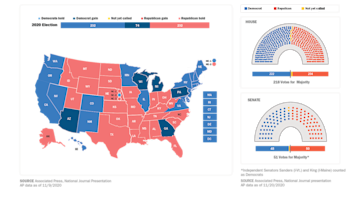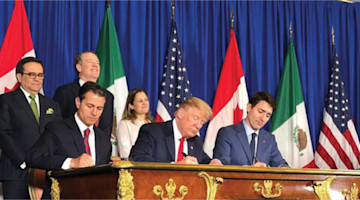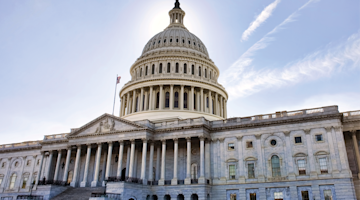When the dust finally settled on the mid-term elections, Democrats gained a net 39 seats, shifting control of the House of Representatives to the democrats. Republicans strengthened their majority in the Senate with a net pickup of three seats. Rep. Nancy Pelosi and Sen. Mitch McConnell will lead their respective bodies in the 116th Congress. How will the new faces and a divided leadership impact the policy agenda? Here’s a look at several topics being discussed:
Regulatory reform will continue to be a priority for the president. According to an administration report, agencies cut $23 billion in regulatory cost across the government in FY18. Moreover, agencies issued 176 deregulatory actions (57 of which are significant) and 14 significant regulatory actions. Adding actions taken during the administration’s first year, the regulatory cost reduction totals $33 billion. The deregulation agenda under Trump is likely to accelerate in 2019 and 2020 as the one lever the executive branch can use without Congressional approval.
Expect litigation from House democrats who can’t halt executive actions but can conduct hearings and investigations into the president’s tax returns, Russian election meddling and the Mueller report.
Trade continues to be a wild card. The president announced a 90-day ceasefire on the trade war with China, temporarily halting an escalation of tariffs on roughly $200 billion worth of Chinese imports scheduled to take effect on Jan. 1. Will that be enough time to work out trade deal or is it just kicking the can down the road? Trade experts aren’t certain.
President Trump has shown he’s more comfortable negotiating bilateral agreements – UK, EU, and Japan – vs multilateral agreements. What’s the fate of US-Mexico-Canada Free Trade Agreement (USMCA)? Even though the agreement is signed, it’s not a done deal. If the vote were held today, the pact would be defeated. There is pushback from members of both parties who don’t feel that Congress was consulted. Democrats will be looking to side agreements to make sure key provisions are enforced.
One issue where both parties agree is infrastructure. The administration plan relies on private funding while the democrats expect most of the $1 trillion plan to be paid by the government. Watch for a more detailed framework in the new year.
We may be in for budget cuts after two years of increases. The 2018 Budget Act increased spending limits for FY18 & FY19, but they’re back in place for FY20. That could spell more than $100B in spending reductions, which will fall disproportionately on defense. In November, President Trump called for agency-wide spending cuts of 5 percent for FY2019.
There likely won’t be a lot done on taxes, despite the massive tax bill republicans introduced in the lame-duck session. That legislation would revive several expired tax provisions known as “extenders,” address glitches in the new tax and make a range of changes to savings- and retirement-related tax provisions. Democrats have other priorities, including healthcare.
The new year could bring new priorities. That’s the way Washington works these days. My advice is to pay attention and not make any plans or decisions based on the news of the day. For questions or comments on government relations issues impacting your company, shoot me an email at athomas@amtonline.org.








